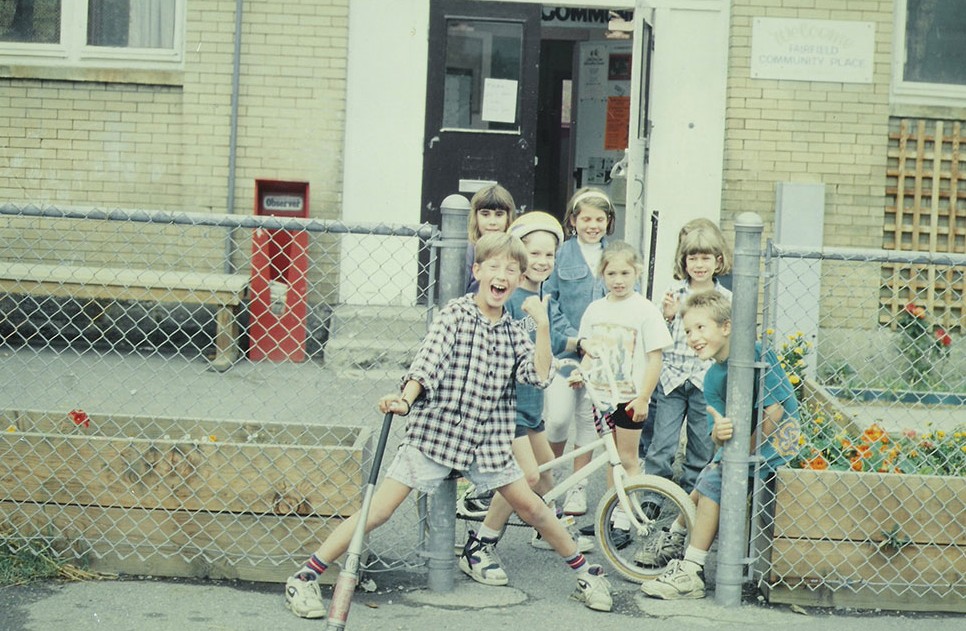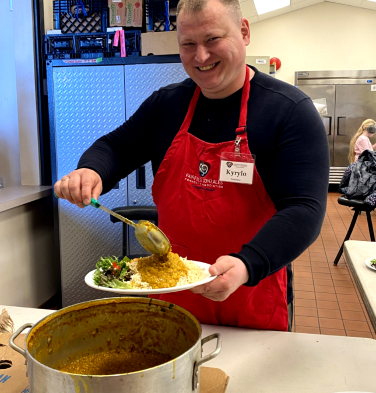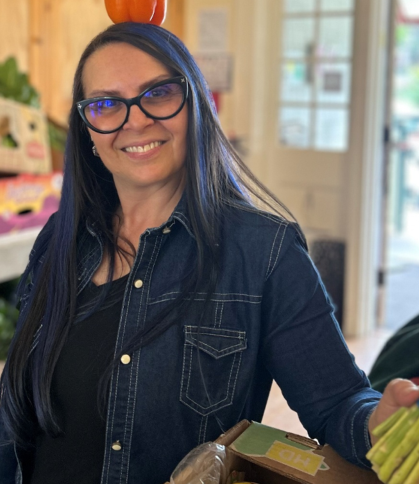Our Story

The Fairfield Community Association was established September 17, 1975 by volunteer residents to enhance the quality of life in Fairfield and Gonzales. From its first inception, these volunteers worked to find out what the neighbourhood needed and work with residents to fill those needs. Early activities included land use advocacy, after school programs, volunteer homemaker services, and neighbourhood celebrations.
In time the Association successfully advocated for a physical space where neighbours could gather and connect, and get access to the services they need. The first ‘Fairfield Community Place’ in 1984 was a brick annex to Sir James Douglas School, later moving to the larger building at 1330 Fairfield Road that still houses the main operations of the Association. Eventually the word ‘Gonzales’ was added to the society’s name to recognize the distinct character of that area.
Fairfield Gonzales Community Association has grown over its long history to operate as a vibrant community centre and neighbourhood house. We offer recreation and leisure programs for all ages, out of school care for Sir James Douglas and Margaret Jenkins elementary schools, childcare for ages 0-5, preschool and family programs, community events throughout the year, projects and initiatives led by residents, school based counselling, and so much more! We are unique in that we serve everybody in our community, not just one age or interest group. We involve residents in making Fairfield Gonzales a better place to live, for everybody!
Our Impact
Our work changes lives. By offering a safe and accessible place for people to connect and care, we build a stronger community and a better life for everybody. Many of those who participate in our programs also are inspired to give back. It is this circle of giving that makes Fairfield Gonzales a truly special place!
From Drumming to Dinners: A Family Finds Belonging in Victoria

In June 2023, Kyrylo, Iana and their daughter Liza arrived in Victoria, leaving behind the uncertainty and danger of life in Ukraine. A musician and cobbler, Kyrylo wanted not only of safety for his family but also of a fresh start-somewhere they could rebuild, belong, and thrive.
As their departure approached, Kyrylo scrolled the internet, learning all he could about Victoria and what it has to offer, eager to get to know the community they were about to join. One post in particular caught his eye: a call out from Annalee, the summer camp manager at the FGCA, looking for musicians to engage with camp participants. Kyrylo reached out. That message sparked a conversation and opened the door to something bigger.
Once Annalee heard their story, she turned to the FGCA team. The FGCA got creative and were able to offer camp space for Liza, to help support the family while they began the work of settling in. While Kyrylo and Iana tackled piles of paperwork, school registration, and employment, – all without speaking English – Liza would be in camp, making friends and enjoying activities in her new city.
Fast forward two years and the entire family speaks English with Liza proudly being the most fluent, often coaching her parents on their accent. They have all made friends through work and school, having people over to enjoy Kyrylo’s delicious cooking.
“Generally, Canadians are quite…. soft, it’s a good thing” Kyrylo reflects, kindly. “It’s not like this in Ukraine. If you are poor, that’s your problem. Here, people help each other. It’s normal to help other people here.”
Inspired by this approach Kyrylo and Iana decided they wanted to give back to the community that welcomed them in, to help build belonging for others. They started volunteering at the FGCA’s community dinners, loved it, and ended up helping at every one for the whole year. If you visit the next round of Community dinners starting in October it’s likely you will see them serving, washing, chatting, casually building belonging. They bring such cheer and enthusiasm to their roles, truly embracing community spirit, showing us that the community you want, is the one you make.
Friends & Fulfillment at Community Pantry

Like many others feeling the pressure of rising living costs in recent years, Netta started exploring different ways to get groceries. She began visiting food programs around the city -community fridges, pantries, any place that would help stretch her dollars a little further.
She heard about the Thursday Market Shop at the FGCA, a program that rescues food nearing its expiry date from local businesses, lays it all out like a store, and invites people to “shop” for free. At 5pm shoppers draw numbers to determine the order, so if you’re near the end, you find yourself standing in line for a bit. Waiting for her turn Netta did what comes easily to her: she started chatting. A natural people person, Netta struck up conversations, shared stories, learned about people, had some laughs. Week after week, she saw the same folks and soon, the wait time became a social catch-up.
Eventually, she found herself coming early, just to chat with people. One day, she got there too early, found herself waiting alone, and thought: Instead of sitting around doing nothing – I could help set up! so, she offered to lend a hand and became a volunteer.Now, Netta helps lay out the food, organize the produce, and greets everyone with genuine care. She’s become part of the program’s good energy, a friendly face who makes people feel seen, remembered, and welcomed.
“You don’t know what kind of day someone’s had,” she says. “If you can just say hi, remember their name, make their day a little nicer, that’s what it’s about.”For Netta, Thursday pantry has become more than just handing out food. After a 30-year career as an esthetician with a loyal base of clients (many of whom became lifelong friends) Netta took a spontaneous road trip out west and fell in love with the coast. She moved, leaving behind her family, friends and community. The pantry offered more than support , it offered belonging.
“Being here helped me realize I like to give,” Netta says. “I might have come for food, but I stayed for the people.”
Now, she knows everyone’s name. And everyone knows hers. That kind of mutual recognition, the simple power of being known, is what community is all about.
At its heart, the Community Pantry is more than free food. It’s a place where people come for groceries and leave with connection. For Netta, it’s become a weekly ritual of joy and generosity – a place to be needed, and to help others feel the same.